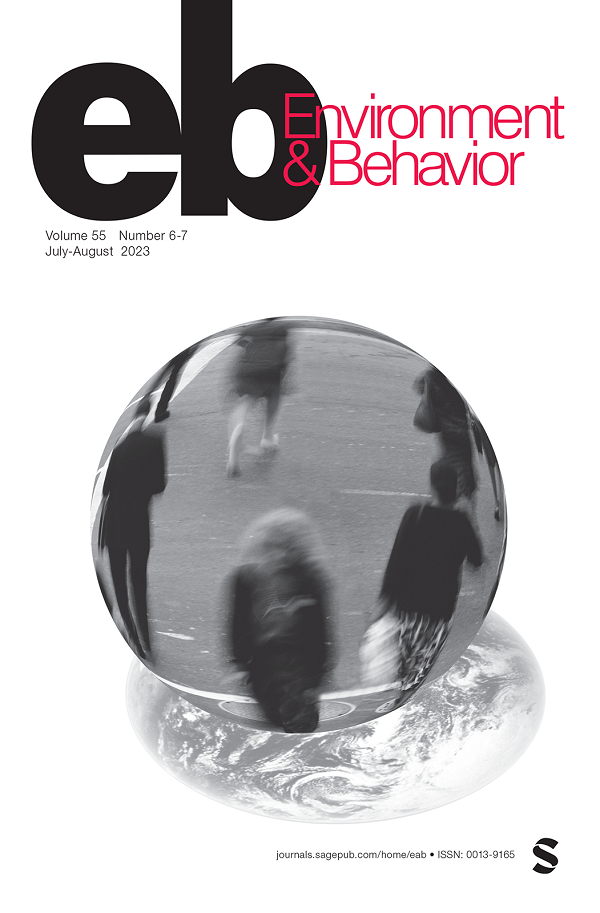通往可持续未来的规范路线:检查儿童的环境价值、身份和个人规范以节约能源
IF 4.6
2区 心理学
Q1 ENVIRONMENTAL STUDIES
引用次数: 36
摘要
如果个人采取环保行动,环境问题就会减少。通常,研究已经调查了解释成年人亲环境行为的因素,但没有调查儿童的因素。由于儿童是必须实现2015年巴黎气候协议设定的目标的未来世代,因此了解哪些因素影响他们参与亲环境行为(例如节能行为)非常重要。在两项针对中小学生的相关研究中(nstudy1 = 69, nstudy2 = 958),我们检验了价值认同-个人规范(Value-Identity-Personal Norm, VIP)模型提出的规范性考虑能否解释儿童自我报告的节能行为。结果表明,与成人研究结果一致,儿童的生物圈价值与他们的节能自我认同相关,进而与他们的个人节能规范相关。此外,我们发现部分支持VIP模型变量与一系列自我报告的节能行为之间的关系。本文章由计算机程序翻译,如有差异,请以英文原文为准。
The Normative Route to a Sustainable Future: Examining Children’s Environmental Values, Identity and Personal Norms to Conserve Energy
Environmental problems could be reduced if individuals act pro-environmentally. Typically, studies have examined factors explaining pro-environmental behavior among adults, but not among children. As children are the future generations that must meet the targets set by the 2015 Paris climate agreement, it is important to understand which factors influence their engagement in pro-environmental behaviors, such as their energy saving behavior. In two correlational studies among primary and secondary school children (nstudy1 = 69, nstudy2 = 958), we tested if normative considerations proposed by the Value-Identity-Personal Norm (VIP) model can explain children’s self-reported energy-saving behaviors. Our results revealed that in line with research among adults, children’s biospheric values were related to their energy-saving self-identity, in turn associated with their personal norms to save energy. Furthermore, we found partial support for the proposed relationship between the variables of the VIP model and a range of self-reported energy-saving behaviors.
求助全文
通过发布文献求助,成功后即可免费获取论文全文。
去求助
来源期刊

Environment and Behavior
Multiple-
CiteScore
13.30
自引率
1.80%
发文量
13
期刊介绍:
Environment & Behavior is an interdisciplinary journal designed to report rigorous experimental and theoretical work focusing on the influence of the physical environment on human behavior at the individual, group, and institutional levels.
 求助内容:
求助内容: 应助结果提醒方式:
应助结果提醒方式:


